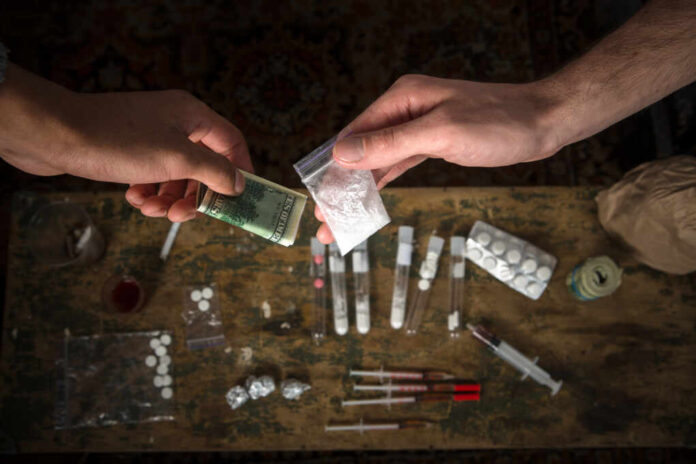
Oregon Reclassifies Drug Possession As Criminal Offense After Addiction Worsened
After Oregon’s failed attempt at decriminalizing drugs, the state announced on Monday that it would reinstate being caught with a small amount of drugs as a criminal offense once again after an increase in drug addiction.
Oregon Gov. Tina Kotek (D) signed House Bill 4002 into law, making personal use possession a misdemeanor, carrying a jail sentence of up to six months.
The decriminalization was a first of its kind in the country, and was essentially used as an experiment in 2020. With 58% support from voters, Measure 110 was approved, making it so that individuals caught with personal possession of illicit drugs such as cocaine, fentanyl and heroin were only issued a ticket and a maximum fine of $100. The fine would have been waived if the offender went to a treatment center.
The former bill also allowed offenders to get their fine dismissed if they called a hotline to complete an addiction screening within 45 days of their ticket.
According to a survey conducted by DHM Research, residents were not thrilled with Measure 110, stating that decriminalizing possession made drug addiction, homelessness and crime even worse. As a result, 63% of voters supported Kotek recriminalizing drug possession.
“Combatting a problem by decriminalizing the problem is bad policy,” said Oregon Senate Republicans last month in a statement. “Never again.”
Woops! Looks like decriminalizing all drugs was a bad call.
That didn’t go to well did it Oregon? 😬https://t.co/TgAiwRJ81f
— Today is America (@TodayisAmerica) April 2, 2024
House Bill 4002 will allow offenders to attend drug treatment instead of being placed behind bars. Advocates of the bill suggest that being offered treatment is a better alternative in the long run.
“What we know as behavioral health and medical professionals … is that when folks voluntarily engage with treatment, they have better outcomes,” said Joe Bazeghi, an employee at Portland’s Recovery Works Northwest detox center.
If they choose to attend treatment, the offender will complete a behavioral health screening, as well as participate in a “deflection program” to satisfy the requirements.
After killing a massive number of people with overdoses, @TinaKotek says…oopsies! Shouldn't this prompt at the very least a recall?https://t.co/eOicua1cnE
— Greg J. Marchand MD (@MarchandSurgery) April 2, 2024
In her letter, Kotek stated that the success of the bill would depend on the courts, law enforcement, prosecutors, defense attorneys and local mental health providers working together.
She described them as “necessary partners to achieve the vision for this legislation.”
The changes will take effect on Sep. 1.

























